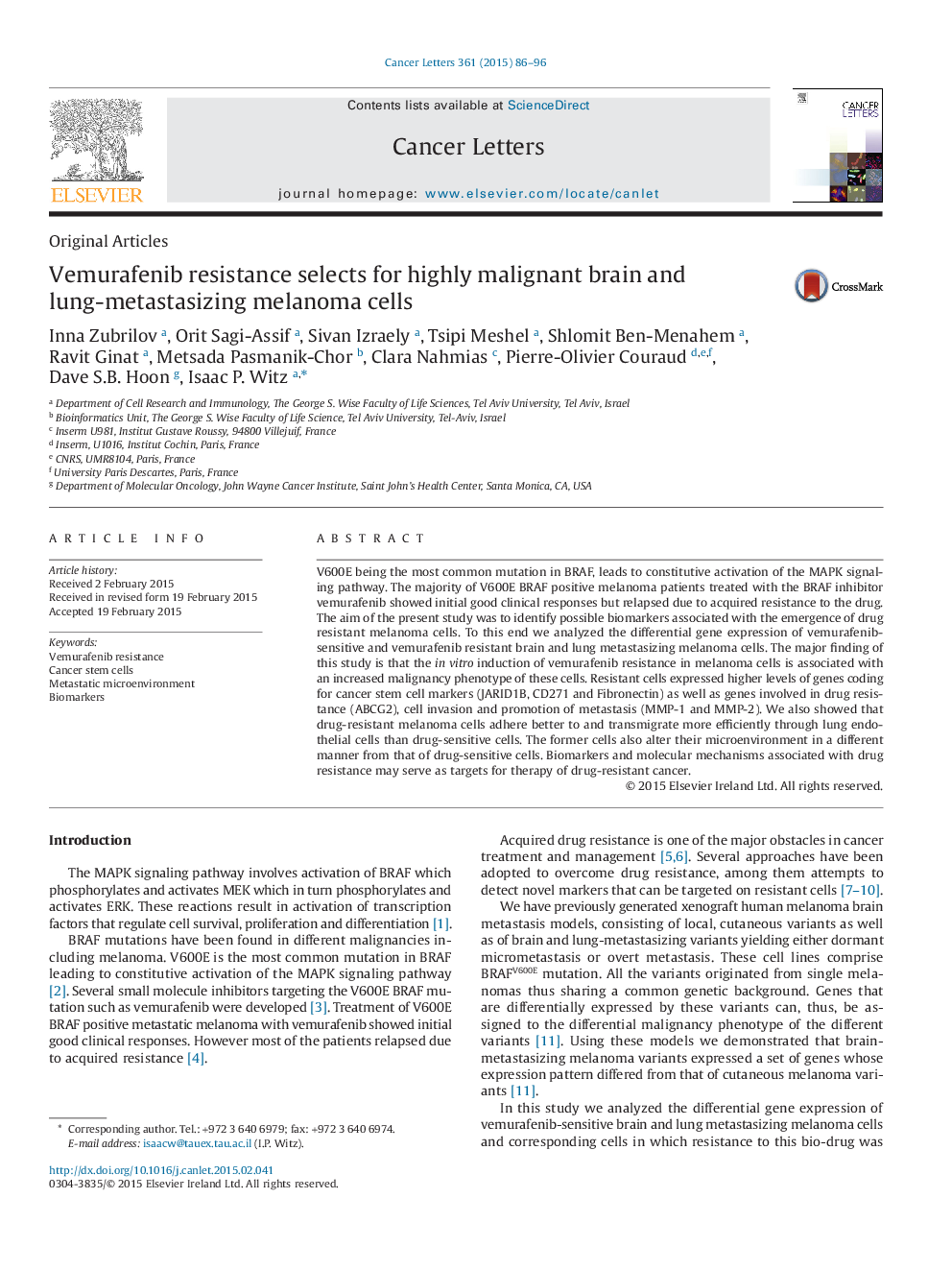| کد مقاله | کد نشریه | سال انتشار | مقاله انگلیسی | نسخه تمام متن |
|---|---|---|---|---|
| 2112447 | 1084385 | 2015 | 11 صفحه PDF | دانلود رایگان |
• Vemurafenib-resistant melanoma cells express an altered gene expression profile.
• Vemurafenib-resistant melanoma cells express higher levels of certain stem cell markers.
• Vemurafenib-resistance of melanoma cells is associated with increased tumorigenicity.
• Vemurafenib-resistant melanoma cells express an increased metastatic phenotype.
• Vemurafenib-resistant and sensitive cells alter differently their microenvironment.
V600E being the most common mutation in BRAF, leads to constitutive activation of the MAPK signaling pathway. The majority of V600E BRAF positive melanoma patients treated with the BRAF inhibitor vemurafenib showed initial good clinical responses but relapsed due to acquired resistance to the drug. The aim of the present study was to identify possible biomarkers associated with the emergence of drug resistant melanoma cells. To this end we analyzed the differential gene expression of vemurafenib-sensitive and vemurafenib resistant brain and lung metastasizing melanoma cells. The major finding of this study is that the in vitro induction of vemurafenib resistance in melanoma cells is associated with an increased malignancy phenotype of these cells. Resistant cells expressed higher levels of genes coding for cancer stem cell markers (JARID1B, CD271 and Fibronectin) as well as genes involved in drug resistance (ABCG2), cell invasion and promotion of metastasis (MMP-1 and MMP-2). We also showed that drug-resistant melanoma cells adhere better to and transmigrate more efficiently through lung endothelial cells than drug-sensitive cells. The former cells also alter their microenvironment in a different manner from that of drug-sensitive cells. Biomarkers and molecular mechanisms associated with drug resistance may serve as targets for therapy of drug-resistant cancer.
Journal: Cancer Letters - Volume 361, Issue 1, 28 May 2015, Pages 86–96
